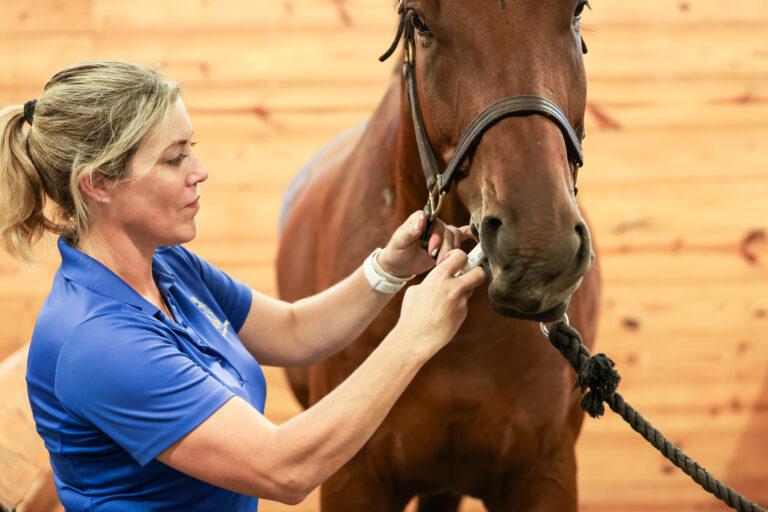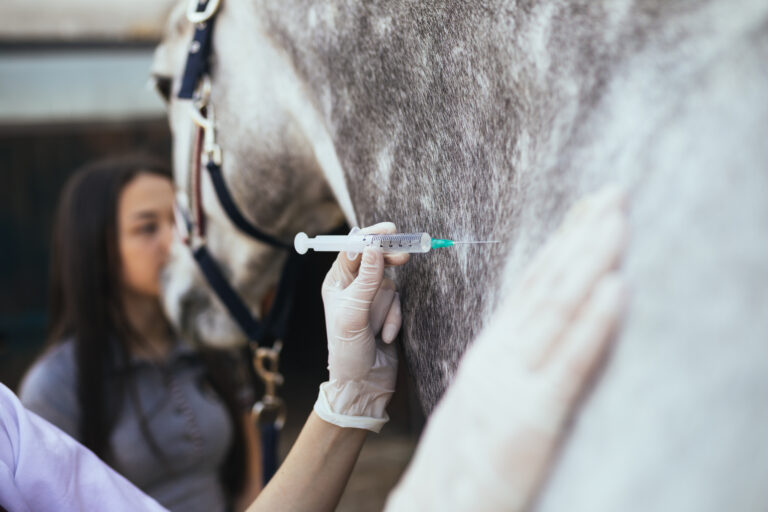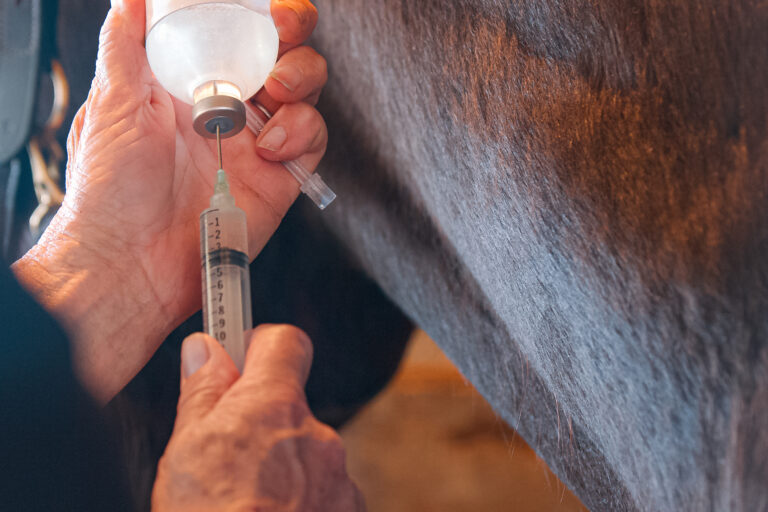
As a very small percentage of each veterinary school class, equine-oriented students often face a degree of isolation and might doubt their career choice. Messaging from well-meaning faculty might encourage them to consider a companion animal position with higher pay and fewer hours so they will “have time to ride.” Between rising educational loan balances, federal loans for graduate education being limited to $200,000, and economic headwinds creating uncertainty in the industry, it is not unreasonable for some students to waver in their commitment to equine medicine.
To help combat these pressures, equine veterinarians in the private sector must be affirming and positive when they interact with students. It’s important to show students the wonderful life they can have as equine doctors. Longer hours, lower pay, and more physical demands will undoubtedly dissuade some students, but for those who love the outdoors, spending their days with horses and traveling through the countryside from one farm to another can be incredibly enjoyable. Rather than warning students of the downsides, many of which are present in any career, mentors should highlight the parts of their job that are meaningful and bring joy.
What Is Psychological Safety?
Psychological safety occurs in environments where candor is accepted, mistakes are forgiven, questions are valued, and employees can challenge the status quo without fear. Harvard Business School professor Dr. Amy Edmondson coined this term and describes it as having four quadrants: the Comfort Zone, the Learning Zone, the Apathy Zone, and the Anxiety Zone, with the x-axis representing motivation and the y-axis representing the degree of psychological safety. Many students and early-career veterinarians live in a state of low confidence and anxiety, perhaps because they feel unable to ask questions and express uncertainties, or because they have been punished or shamed for asking questions or offering ideas in their school or workplace. They might be highly motivated, but they just don’t feel safe in their environment. The best mentors offer a refuge of psychological safety for students where they can enter the Learning Zone and gain confidence without anxiety.
How to Be a Good Mentor
When psychological safety is present, a person feels included, safe to learn, safe to contribute, and safe to challenge the status quo without fear of being embarrassed, marginalized, or punished. Having a mentor who’s an island of safety can be transformative for an equine veterinary student. Set expectations for where and when students should ask questions, but let them know they are welcome. Model vulnerability by sharing mistakes you have made, uncertainties you have had during practice, and how you bounced back from sad outcomes despite your best efforts.
You might never know the ways you have helped young colleagues achieve their dreams, but your influence matters.
Related Reading
- Equine Veterinary Sustainability: What Equine Vet Students, New Grads, and Interns Need
- Equine Veterinary Sustainability: How to Attract Interns to Your Program
- Guiding the Next Generation: Mentorship in Equine Veterinary Practice
Stay in the know! Sign up for EquiManagement’s FREE weekly newsletters to get the latest equine research, disease alerts, and vet practice updates delivered straight to your inbox.




